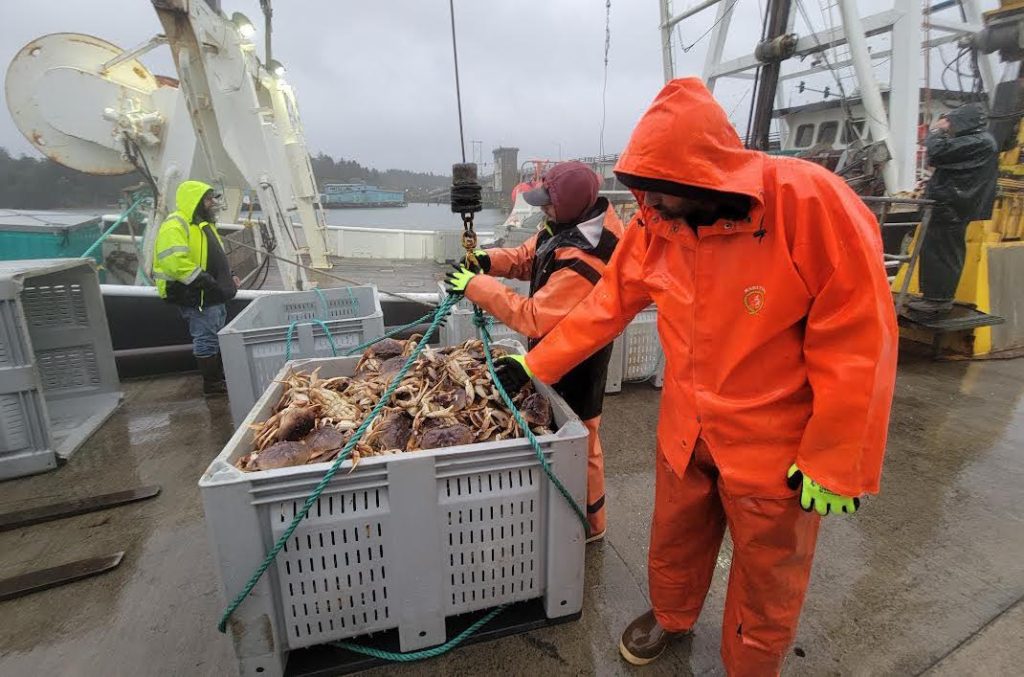
By DANA TIMS/YachatsNews.com
The last remaining stretch of Oregon’s coastline that has been closed to commercial Dungeness crab fishing will open Saturday, Feb. 4.
Like so much of this season’s halting progress, a single caveat still applies to that stretch, which ranges from Cape Arago just south of Charleston to the California border.
It involves stubbornly high levels of domoic acid, a dangerous biohazard associated with algal blooms. Further testing is underway, but if acid levels remain elevated, crab caught along that portion of the coast can only be sold after their guts – where domoic acid accumulates – are removed by a licensed Oregon Department of Agriculture seafood process. Those crabs cannot be sold whole.
“Opening the crab season in any area with evisceration requirement is not ideal,” Caren Braby, the Oregon Department of Fish and Wildlife’s marine resources program manager, said in a statement. “However, we need to get the fishery going for the vessel crews who are waiting for paychecks and to avoid the on-coming migration of whales.”
The earliest commercial crabbing can begin in Oregon is Dec. 1. This season was delayed, however, due to low meat levels and high domoic acid levels in some areas.
This season the coast-wide harvest was first delayed from Dec. 1 to De. 15, then again to Dec. 31, and a third time to Jan. 15 – but only from Manzanita in the north to Coos Bay in the south.
The north coast season opens Feb. 15.
There are about 320 crabbers working in what is Oregon’s most valuable commercial fishing season.
But, the late start to the Dungeness season also resulted in lower than average prices paid to crabbers – ranging from $2.25 to $3.25 a pound, depending on whether they were destined to be frozen and sold later, or for the live fresh or whole crab market.
Tim Novotny, with the Oregon Dungeness Crab Commission, said initial indications are that both overall crab numbers are good, and that their respective sizes are on the large end of the spectrum.
“Not everyone will have the same universal experiences, but I’m hearing good things,” he said. “We’re always cautiously optimistic. This year, we’re just a bit more cautiously optimistic-er.”



